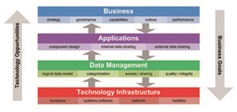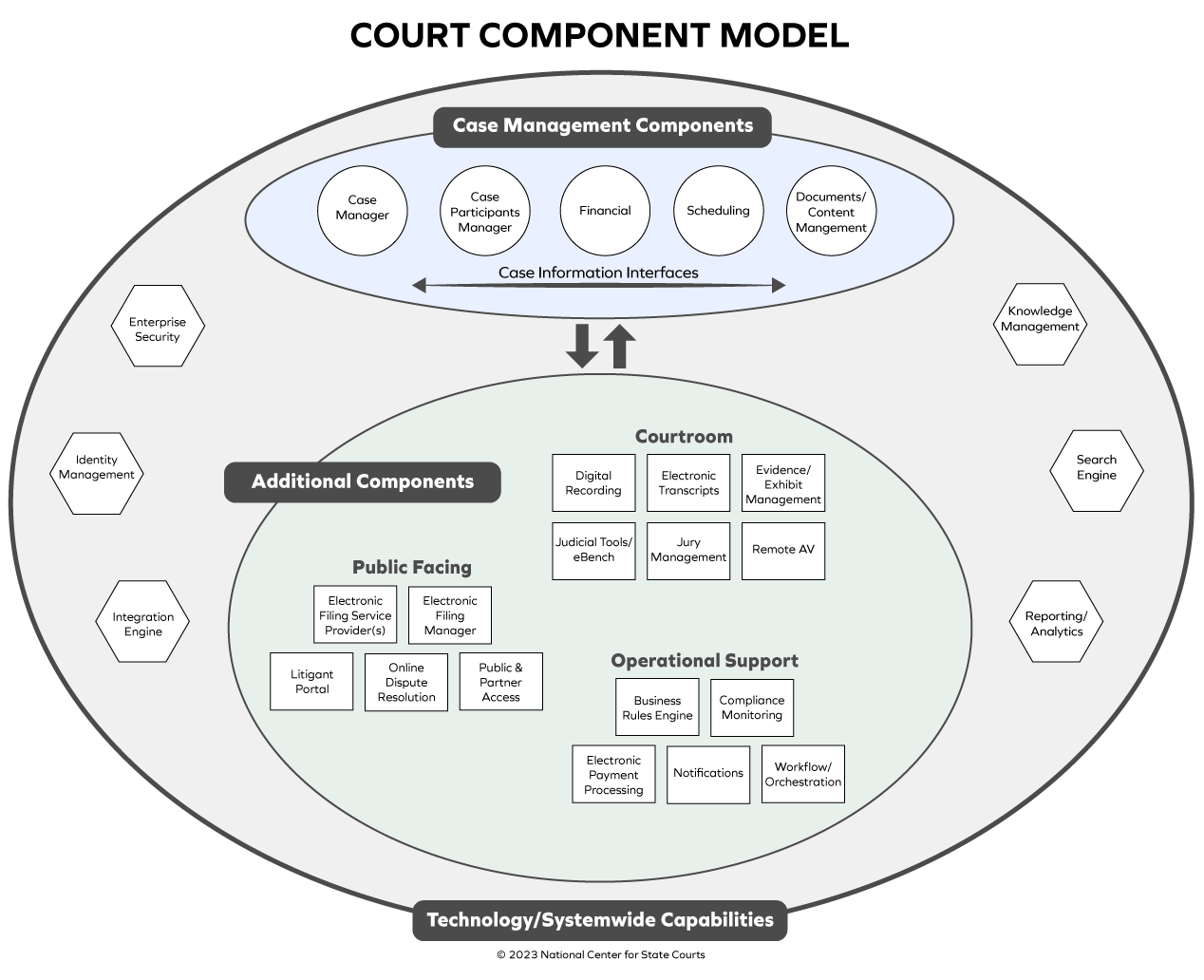A more detailed list of JTC standards with current status and approval dates is available here.
- Civil Functional Requirements (adopted 2001)
- Domestic Relations Functional Requirements (adopted 2003)
- Criminal Functional Requirements (adopted 2003)
- Juvenile Functional Requirements (adopted 2004)
- Traffic Functional Requirements (adopted 2005)
- Consolidated Functional Requirements (draft only - 2007)
- Introduction to the Next-Generation Court Technology Standards Application Component Model (version 1.0, adopted 11/29/2017)
- Court Capability Model (PDF)
- Court Capability Model Mind Map (XMind) (if you don't already have it, you can download a free version of XMind here)
- Court Business Process Model (PDF)
- NextGen ZIP file with all Phase 1 documents
- Information Sheet (PDF)
- Guardianship Business Capability Model (DRAFT):
- Mind Map (PDF)
- Mind Map Outline (PDF)
- Guardianship User Stories (Excel)
- Guardianship System Scenarios (PDF)
- Guardianship Recommended Data Elements, NODS Supplement (PDF)
- E-Filing Processes: Technical and Business Approaches (adopted 2003)
- Implementing CCJ/COSCA Guidelines for Public Access to Court Records (adopted 2006)
- OASIS LegalXML Electronic Court Filing (ECF) Specifications version 4.01 (adopted 2009)
- Jury Management System Requirements (PDF) (Word) (adopted December 2014)
- Jury Management Capability Model (PDF) (XMind) (if you don't already have it, you can download a free version of XMind here; the PDF version is not as easy to read, but does not require XMind)
- ODR Technical Interface Standards (working draft 03) (PDF)
Standards that are formally reviewed by the JTC and approved by COSCA and NACM follow the JTC standards process described here (revised April 22, 2014).

